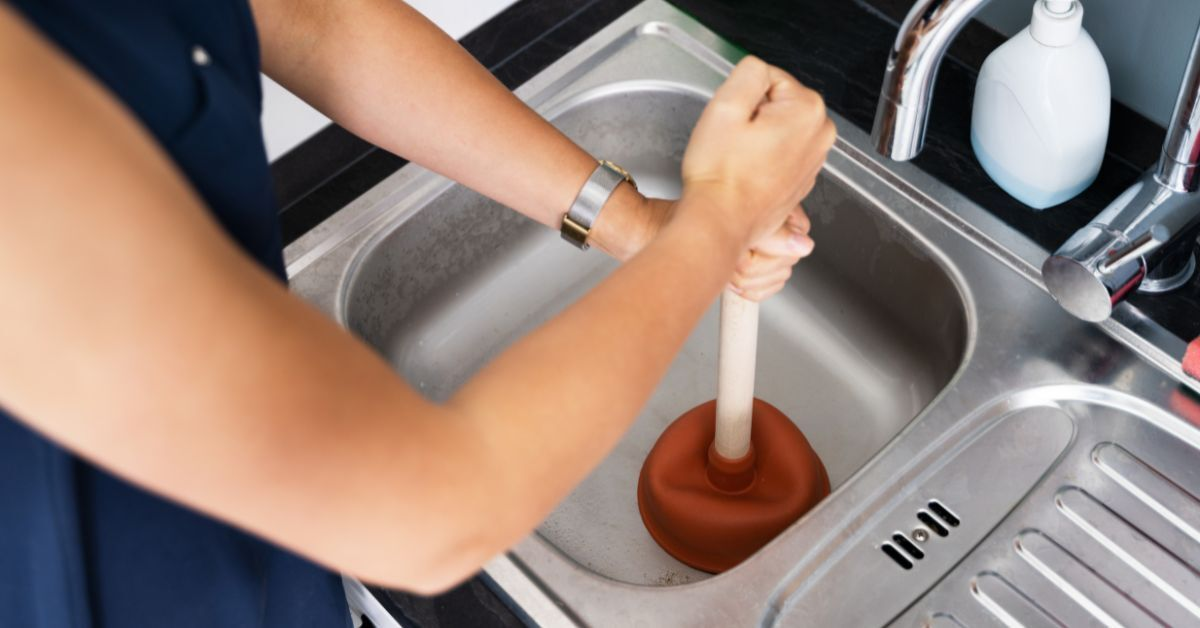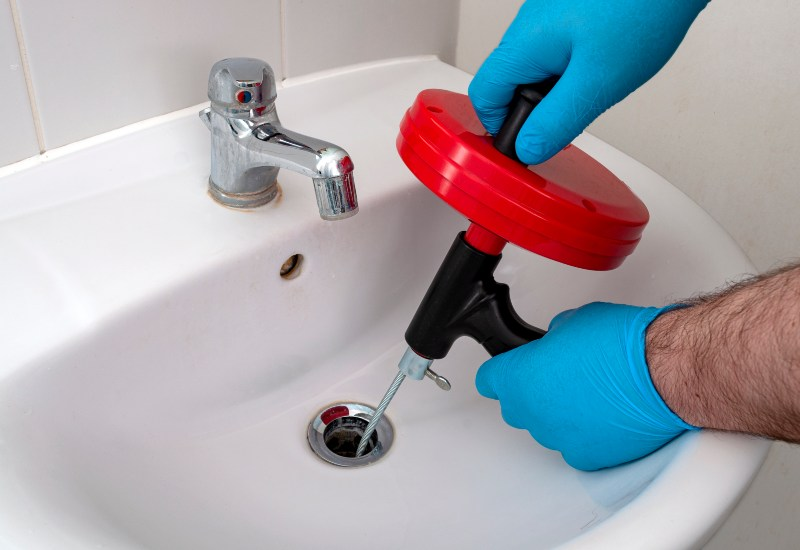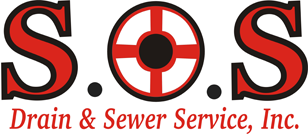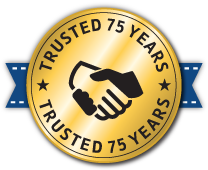Struggling with clogged drains can be frustrating and messy. To help you avoid this common household nuisance, we’ve put together a straightforward guide on how to prevent clogged drains in your home.
In this article, you’ll discover practical tips and routine practices to keep your drains clear, from your kitchen sink to your bathroom pipes, without relying on last-minute, costly plumbing services. Let’s dive into preventive strategies that will save you from the inconvenience of clogged drains.
Staying Ahead of Clogged Drains: Proactive Measures

The key to preventing clogged drains lies in proactive measures and consistent maintenance. By staying on top of your plumbing system’s needs, you can save yourself the headache and expense of frequent clogs and the need for plumbing services. This post is crafted to shed light on effective methods to keep your drains free-flowing, from the bathroom to the kitchen, without the need for a drain cleaner’s intervention.
Let’s dive into the practices that will keep your drains running like a well-oiled machine.
Use Sink Strainers and Drain Covers
An ounce of prevention is worth a pound of cure, especially regarding your drains. The simplest yet most effective tool in your arsenal against clogged drains is the humble sink strainer or drain cover.
In the kitchen, these guardians stand as the first line of defense against a clogged drain caused by food scraps, while in the bathroom, they catch hair and soap remnants before they can conspire to block your shower drain. However, if you find yourself facing a stubborn blockage, a drain snake can be a handy tool to have on hand.
Even those stealthy soap slivers that escape notice can harden in your pipes and create blockages, a problem significantly reduced with the use of drain covers.
Dispose of Grease Properly
When it comes to kitchen nightmares, few things are as dreaded as a grease-clogged sink. It’s a culinary crime to pour grease down the drain, as it solidifies and creates blockages that are challenging to clear. Instead, let the grease cool and pour it into a sealable container to be disposed of in the trash.
Remember, the garbage disposal is not a grease disposal; fats, oils, and grease should never go down there if you want to prevent a clogged kitchen sink.
Flush Drains With Hot Water Weekly
Imagine a weekly ritual that keeps your drains clog-free. That’s the magic of flushing your drains with hot water. Make it a habit to pour boiling water down your drains regularly to prevent the buildup of grease, oil, and other substances that can lead to blocked drains. This simple act can dissolve those lurking grease accumulations in your kitchen sink drain and ensure that water continues to flow freely.
Plus, running hot water after using a utility sink is like a mini spa treatment for your pipes, preventing clogs and maintaining a smooth drainage system.
Routine Maintenance for Flowing Drains
Routine maintenance is the unsung hero of a clog-free home. By incorporating natural cleaners and regular checks into your cleaning routine, you can keep your drains flowing as they should. Some tips for maintaining clog-free drains include:
- Using a combination of baking soda and vinegar to clean and deodorize your drains
- Pairing the baking soda and vinegar mixture with boiling water to help break down blockages
- Regularly checking your drains for any signs of clogs or slow drainage
- Using a drain strainer to catch hair and other debris before it goes down the drain
By following these tips, you can keep your drains clear and prevent clogs from occurring.
Don’t forget to check your drains for debris at least once a month to mitigate the risk of blockages.
Baking Soda and White Vinegar Solution
Ditch the harsh chemicals and embrace the natural cleaning power of baking soda and white vinegar. This dynamic duo offers a safe, effective way to keep your drains clear without risking damage to your plumbing.
Combine a cup of baking soda with a cup of vinegar and water solution, pour it down the drain, and let the fizzy reaction do its magic for 5 to 10 minutes before rinsing with hot water. This reaction creates pressure and movement that can dislodge clogs, leaving your drains smelling fresh and running smoothly.
Hair Catching Brush and Bent Wire Techniques
The bathroom is often where hair goes to create clogs, but with the right tools, you can stop hair in its tracks. A hair catching brush is a simple yet effective device for keeping your shower drains and bathroom sink drains clear.
For those hairs that manage to slip by, a bent wire hanger can become your best friend, reaching into the drain to pull out clumps of hair that have accumulated over time. By regularly clearing out hair, you play a crucial role in maintaining a clog-free bathroom.
The Right Way to Use Your Garbage Disposal
The garbage disposal can either be a great kitchen helper or a source of plumbing woes, depending on how you use it. To ensure it remains the former, there are a couple of golden rules to follow:
- Make sure it’s free of foreign objects before use.
- Remember to run cold water before, during, and after disposal use to keep things moving.
- While it might seem like a convenient way to dispose of food scraps, only specific types of waste should be ground up and flushed away.
Run Cold Water During and After Disposal Use
Running cold water is like giving your garbage disposal a helping hand. It solidifies fats, ensuring they’re chopped and flushed away efficiently rather than sticking to the sides of your drain pipes. Start the water flowing before you switch on the disposal and let it continue for about 30 seconds afterward to ensure all the food particles are sent on their way down the drain.
Avoid Problematic Foods
To keep your garbage disposal from becoming a harbinger of clogs, be selective with what you feed it. Here are some foods to avoid:
- Coffee grounds
- Eggshells
- Banana peels
- Potato skins
- Fibrous foods
- Hard items like bones and fruit pits
These foods are notorious for causing blockages and can damage the blades of your disposal. Avoiding them will help keep your disposal running smoothly.
By steering clear of these problematic foods, you’ll be doing your part in preventing drain clogs and ensuring the longevity of your disposal.
Addressing Common Missteps That Lead to Clogs
Sometimes, clogs occur not because of what’s going down the drain, but because of how we treat our drains. Educating everyone in your household about what shouldn’t go down the drains is a crucial step in clog prevention. From oils and fats that belong in the trash to sand and grout that can wreak havoc on your plumbing, knowing what to keep out of your drains is essential.
And let’s not forget the toilets—they’re not wastebaskets, and treating them as such can lead to a host of problems.
Don’t Treat Toilets Like Wastebaskets
Your toilet is designed for two things only: human waste and toilet paper. Anything else, and you’re asking for trouble. Even though some products claim to be flushable, they often don’t disintegrate the way toilet paper does, leading to blockages.
Flushing items like wipes or too much toilet paper can cause immediate clogs in your toilet and potentially lead to backups in your home’s lateral pipes, resulting in expensive repairs. So, remember to only flush what’s meant to be flushed and keep those non-degradable products out of the toilet.
Preventative Use of Enzymatic Drain Cleaners
In the realm of drain maintenance, enzymatic drain cleaners are your secret weapon. These cleaners use bacteria and enzymes to break down organic waste, offering a gentle yet effective approach to keeping your drains clear. Compared to chemical drain cleaners, enzymatic cleaners are less harsh on your pipes, reducing the risk of corrosion and ensuring the health of your plumbing over time.
By applying these bacterial drain cleaner products monthly, you actively prevent clogs from forming and maintain a clear drainage system. Plus, their prolonged cleaning action keeps working long after application, giving you peace of mind and a clog-free environment.
Seasonal Checks and Professional Inspections

As seasons change, your home’s plumbing faces different challenges, from falling leaves to freezing temperatures. Seasonal maintenance, complete with professional inspections and cleaning, is key to keeping potential clogs at bay. Addressing outdoor clogs requires vigilance, especially during seasons with heavy leaf fall or rain. Ensure to clear debris from drain grates and check sewer cleanouts to prevent blockages from escalating.
When tougher clogs do arise, professionals equipped with tools like hydro-jetters can clear the way for smooth water flow once again.
Schedule Annual Video Inspection
Preventative maintenance isn’t just about clearing visible blockages; it’s also about uncovering the hidden ones. Annual video inspections are a proactive measure that allows you to peer into the unseen world of your plumbing system. With a camera snaking its way through your pipes, plumbing experts can spot clogs, cracks, and even tree root intrusions that aren’t apparent from above ground.
By scheduling these inspections every year, you can catch potential issues early, saving yourself from unexpected blockages and maintaining a healthy plumbing system.
When to Call in the Experts: Recognizing Serious Blockages
Even with the best maintenance routines, some blockages are too tough to handle on your own. Recognizing the signs of serious blockages is crucial, as they can lead to persistent odors, slow drainage, and recurrent clogs, signaling it’s time to call in the experts. Ignoring these symptoms can result in unpleasant smells, health hazards, and even environmental damage, not to mention the stress and expense of emergency plumbing services.
Professional drain cleaners have the tools and expertise to provide permanent solutions to these issues, ensuring your drains stay clear for the long haul.
Tailored Tips for Specific Areas of the Home
Every area of your home has its unique plumbing challenges. For instance, bathroom drains are notorious for hair and soap clogs, while kitchen sinks often suffer from food and grease blockages. Implementing targeted strategies like installing drain screens in the bathroom and scraping dishes into the trash or compost before washing them can make a significant difference in preventing clogs.
And let’s not forget about the laundry room—using the right amount of detergent is crucial, as too much can lead to buildup and blockages over time.
Bathroom Best Practices
In the bathroom, a few simple habits can keep your drains running smoothly. Here are some tips:
- Brush your hair before showering to prevent clogged drains.
- Regularly clean out the pop-up stoppers.
- Use a mesh screen over the drain to capture hair, soap, and toothpaste before they become a problem.
These habits can help maintain the cleanliness and functionality of your drains.
And when giving your furry friends a bath, lay a washcloth over the drain to protect it from pet hair.
Kitchen Wise Choices
In the kitchen, wise choices can save you from the despair of a clogged kitchen sink. Drain strainers are invaluable for catching food scraps before they can cause trouble. Instead of washing organic waste down the drain, consider starting a compost pile or using a dedicated container for scraps. This not only helps your drains but also benefits the environment.
Contact SOS Drain & Sewer Services For Your Drain and Sewer Needs
Are you experiencing issues with clogged drains, frozen pipes, or other plumbing problems in your home or commercial property? Look no further than S.O.S Drain & Sewer Services for all your drain and sewer cleaning needs. Our family-owned and operated business has been providing trusted services to clients in Minneapolis, St. Paul, and the entire Twin Cities area since 1941.
At S.O.S Drain & Sewer Services, we prioritize customer satisfaction and trust by offering personalized solutions for each client’s unique needs. We provide free on-site evaluations and estimates over the phone to ensure transparency with our pricing. Our main goal is to prevent costly repairs in the future by ensuring your drains and sewers are functioning properly.
We offer a wide range of services, including sewer and drain cleaning, thawing of frozen pipes, tree root removal, leaky pipe repairs, and much more. Our expert technicians are highly trained and equipped with the latest tools and techniques to effectively address any plumbing issue.
Don’t let clogged drains or sewer issues disrupt your daily routine. Contact S.O.S Drain & Sewer Services today for reliable and professional drain cleaning services in Minneapolis and St. Paul. We are available 24/7 to assist with any emergency plumbing needs.
FAQs
Can I use hot water to flush all types of drains in my home?
Yes, you can use hot water to flush all types of drains in your home, as it helps maintain clear pipes and dissolves grease in kitchen sinks. It’s effective for preventing soap and oil buildup in bathroom sinks and showers as well.
Is it safe to use a baking soda and vinegar solution in my drains if I have a septic system?
Yes, it is safe to use a baking soda and vinegar solution in your drains if you have a septic system, as the natural reaction between these two ingredients is safe and won’t disrupt the bacterial balance in your septic tank.
How often should I use an enzymatic drain cleaner to prevent clogs?
You should use an enzymatic drain cleaner monthly to prevent clogs by maintaining clear drains and preventing organic material buildup. Regular use will help maintain the effectiveness of the cleaner.
What should I do if I have a recurring clog that I can’t seem to fix myself?
It’s best to call a professional drain cleaner who has the specialized tools and expertise to diagnose and resolve recurring clogs that you can’t fix yourself.
Can I conduct a video inspection of my drains myself, or should I hire a professional?
It’s best to hire a professional for a video inspection of your drains. Plumbers have the expertise and high-quality equipment to accurately assess the condition of your drains and recommend the best course of action to keep them clear.
Preventative maintenance, recognizing serious blockages, and tailored tips for specific areas of the home are all crucial in maintaining a healthy plumbing system. By implementing these practices and contacting professionals when needed, you can prevent costly repairs and keep your drains flowing smoothly.
Don’t hesitate to reach out to S.O.S Drain & Sewer Services for all your drain and sewer cleaning needs in the Twin Cities area. So remember- prevention is key when it comes to keeping your drains happy! Keep those pipes clean and schedule regular maintenance to avoid any unexpected clogs or emergencies.








